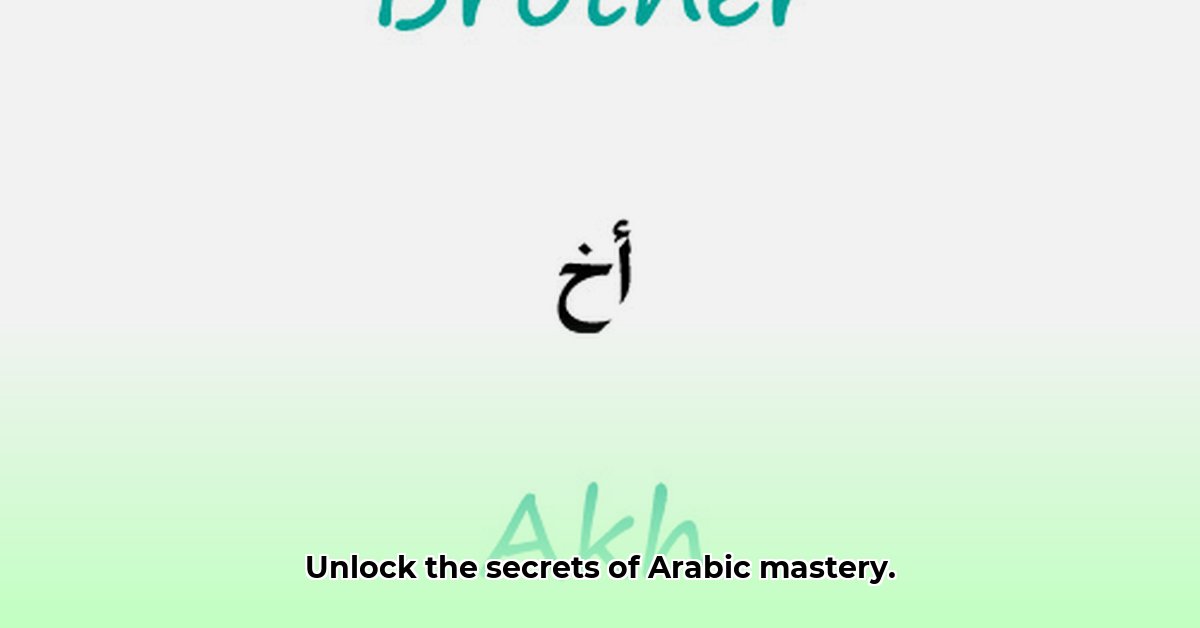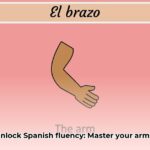# Mastering "Brother" in Arabic: A Comprehensive Guide
Ever wondered why there isn't just *one* word for "brother" in Arabic? It's more complex and fascinating than you might think! Expressing "brother" in Arabic hinges on several factors: your relationship, the level of familiarity, and even the geographical location within the Arab world. This guide dissects the myriad ways to say "brother," ranging from the utmost formal to the most casual, empowering you to select the appropriate term every time. We'll delve into core vocabulary, explore regional dialects, examine levels of formality, and uncover cultural nuances. For deeper insights into cultural understanding, check out this helpful resource: [Arabic cultural insights](https://www.lolaapp.com/warrior-of-god/).
## Brother in Arabic: A World of Nuance
The simple act of calling someone "brother" in Arabic opens up a world of nuance, reflecting the rich Arab culture and diverse dialects. This guide navigates the fascinating landscape of Arabic terms for "brother," from formal greetings to endearing nicknames, enhancing your *Arabic language skills* and *cultural sensitivity*.
### Core Vocabulary: The Foundation
Let's begin with the basic vocabulary. The most common and versatile word for "brother" is *akh* (أخ). Consider this your all-purpose term, akin to using "brother" in everyday English. To add a personal touch, use *akhi* (أخي), which translates directly to "my brother." For referring to multiple brothers, the correct term is *ikhwati* (إخوتي). These subtle shifts in meaning highlight the precision of Arabic, where words possess distinct *linguistic features*.
To be more specific, *shaqiq* (شقيق) refers to a full brother, one who shares both parents. In contrast, *akh ghair shaqiq* (أخ غير شقيق) denotes a half-brother, literally "brother not full-brother." Employing the right term showcases a deeper understanding of family dynamics within Arab culture.
### Regional Variations: A Mosaic of Dialects
Arabic is not monolithic; it comprises various dialects, each with unique characteristics. The terms used to address a brother can, therefore, vary significantly depending on the region. In Levantine dialects (spoken in Lebanon, Syria, Jordan, and Palestine), *khayye* (خَيّي) or *akho* (أخو) are common affectionate terms. In Egyptian Arabic, however, one might encounter *akhuiya* (أخويا) demonstrating the diverse range of expressions across different regions. Acknowledging these variations is crucial to understanding the richness of *Arabic dialects*.
### Levels of Formality: Expressing Respect
The context of the conversation dictates the level of formality required. In a casual setting, *ya akhi* (يا أخي) serves as an informal way to call out to a brother. However, to demonstrate respect, one might use *akhi al-aziz* (أخي العزيز) or *akhi al-karim* (أخي الكريم), translating to "my dear brother" or "my respected brother," respectively. The subtle shift in language emphasizes the importance of showing respect in Arab culture, where the choice of words reflects the relationship and social context.
### Cultural Nuances: Family and Kinship
The use of terms for "brother" in Arabic reflects cultural values. Arab societies place immense importance on family, which is reflected in the abundant vocabulary used to describe familial relationships. Certain terms pinpoint specific aspects of family structure or lineage, highlighting the cultural weight given to these concepts. This diverse vocabulary demonstrates how integral family is to *Arabic culture*.
### Informal Terms: Endearment and Closeness
Let's explore informal terms of endearment. Words such as *ya khui* (يا خوي), *wedi* (ودي), and *khwayy* (خويِّ) signify close relationships and strong bonds. These terms are primarily used amongst close friends and family members, expressing intimacy. However, their usage is highly regional and can be challenging to pinpoint due to the fluidity of spoken dialects.
### Practice Exercises: Testing Your Knowledge
Test your comprehension with these exercises:
1. How would you respectfully address your elder brother in a formal setting?
2. What term would you use to describe a brother who shares only one parent with you?
3. What is a common informal term for "brother" used in Egyptian Arabic?
(Answers are at the end of this guide)
### Further Exploration: Expanding Your Arabic Lexicon
To deepen your understanding of Arabic kinship terms, consult specialized online resources and dictionaries focusing on Arabic dialects. Language learning platforms offer insights into vocabulary usage and cultural contexts. Immerse yourself in Arabic media and engage with native speakers to grasp the nuances of the language and its cultural expressions related to brotherhood. This ongoing learning journey will allow you to truly embrace *Arabic language and culture*.
**(Answers to Practice Exercises): 1. أخي الكريم (akhi al-karim) or other respectful phrases. 2. أخ غير شقيق (akh ghair shaqiq). 3. أخويا (akhuiya).**
## Mastering Informal Arabic Brother Terms Across Dialects
### Key Takeaways:
* Many Arabic words for "brother" differ by region, formality, and relationship.
* Mastering informal terms requires dialect familiarity.
* Cultural context is critical for appropriate usage.
* Practice and immersion are vital for language mastery.
### Core Vocabulary: The Basics
Let's establish the basics. The standard Arabic term for "brother" is *akh* (أخ). Then we have *akhi* (أخي), meaning "my brother," and *ikhwati* (إخوتي), for "my brothers." The term *shaqeeq* (شقيق) signifies a full sibling, while *akh ghair shaqiq* (أخ غير شقيق) refers to a half-brother.
### Regional Variations: A Brotherly Tapestry
The dialects are where things get interesting. What's common in Cairo might be uncommon in Beirut. The phrase *ya akhi* (يا أخي) is generally understood as an informal greeting, akin to "Hey, brother!" across the Arabic-speaking world. In Egypt, *ya sahbi* (يا صاحبي) ("O my friend") might be heard, while in the Levant, *ya zehri* (يا زهري) or *ya habibi* (يا حبيبي), meaning "my dear," can convey a similar warmth.
### Levels of Formality: Context is Key
Formality varies in Arabic. Addressing an older brother formally might require *akhi al-muhtaram* (أخي المحترم), "my respected brother". This contrasts sharply with *ya khui* (يا خوي), used casually amongst close friends in some regions. Would you use *ya ged' (يا جدع)* with an older family member? Probably not, as it is more suitable amongst close peers and expresses strong camaraderie.
### Cultural Nuances: Beyond Blood
Brotherhood in Arabic extends beyond genetics. Religious brotherhood (*akh fi-deen* أخ في الدين) is significant, and close friends often use brotherly terms.
### Informal Terms: Dialect Deep Dive
*Ya khui* (يا خوي) is used across dialects, implying close friendship, but its exact meaning is dependent on the region. Other informal terms, like *ya habibi*, are more affectionate.
### Practice Exercises: Putting it into Practice
1. You meet a friend's elder brother for the first time. How do you address him respectfully?
2. You're chatting with a close friend. What do you say?
3. You want to get someone's attention informally. What do you say?
Latest posts by Lola Sofia (see all)
















